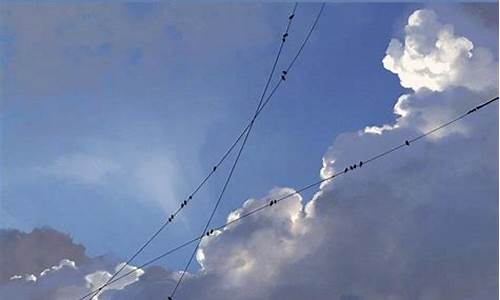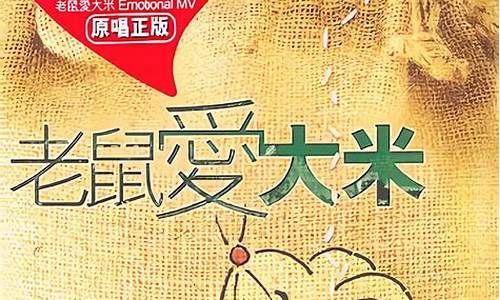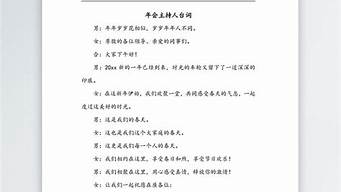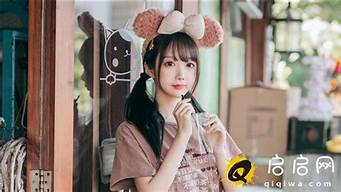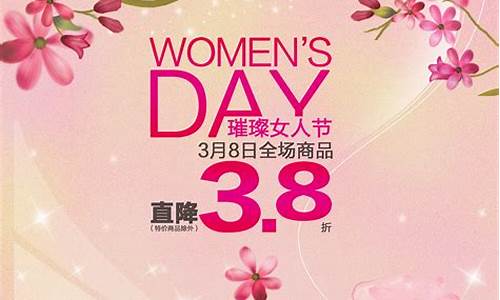您现在的位置是: 首页 > 字数作文 字数作文
习俗英语
zmhk 2024-05-14 人已围观
简介习俗英语 非常感谢大家聚集在这里共同探讨习俗英语的话题。这个问题集合涵盖了习俗英语的广泛内容,我将用我的知识和经验为大家提供全面而深入的回答。1.有哪些关于端午节习俗的英语?2.春节的习俗英语3.春节习俗英语介绍是什么?4.过年的风俗英
非常感谢大家聚集在这里共同探讨习俗英语的话题。这个问题集合涵盖了习俗英语的广泛内容,我将用我的知识和经验为大家提供全面而深入的回答。
1.有哪些关于端午节习俗的英语?
2.春节的习俗英语
3.春节习俗英语介绍是什么?
4.过年的风俗英语
5.春节习俗英语是什么?

有哪些关于端午节习俗的英语?
1、吃粽子Zongzi are pyramid-shaped dumplings made of glutinous rice, stuffed with different fillings and wrapped in bamboo or reed leaves. This traditional food is popular during the Dragon Boat Festival.?
粽子是用糯米做成的金字塔形的饺子,用不同的馅料填充,用竹叶或芦苇叶包裹。这种传统食品在端午节很受欢迎。
2、饮雄黄酒
Realgar wine is Chinese liquor seasoned with realgar. It is a custom to drink the wine during the Dragon Boat Festival.
雄黄酒是用雄黄调味的中国白酒,端午节喝酒是一种习俗。
3、赛龙舟
Dragon boat racing is a traditional pastime where crews of 22 seated in long, dragon-shaped boats race lengths of up to 2000m. The Races are an indispensable part of the Dragon Boat Festival and are held all over China.
赛龙舟是一项传统的消遣活动,由22名船员组成的龙舟长龙比赛长度达2000米,是端午节不可缺少的一部分,在中国各地都有举行。
4、佩香囊
During Dragon Boat Festival, parents typically dress their children up with a sachet. They first sew little bags with colorful silk cloth, then fill the bags with perfumes or herbal medicines, and finally string them with silk thread. The sachet, which is said to be able to ward off evil, is usually hung around the child's neck or tied to the front of his or her garment as an ornament.
端午节期间,父母通常会用香包给孩子打扮。他们先用五颜六色的丝布缝上小包,然后在包里装满香水或草药,最后用丝线串起来。这种据说能辟邪的香囊,通常挂在孩子的脖子上或系在衣服的前面作为装饰品。
5、驱五毒
During the Dragon Boat Festival, residents make an effort to drive away poisonous pests, including scorpions, vipers, centipedes, house lizards and toads.
“驱除五毒”端午节期间,居民们努力驱除有毒的害虫,包括蝎子、毒蛇、蜈蚣、壁虎和蟾蜍。
春节的习俗英语
春节的传统活动有哪些英语写春节的传统活动有哪些英语写。春节是我们国家非常盛大的一个节日,春节的传统活动是非常多的,不少人好奇用英语该如何表达春节的传统活动。下面分享春节的传统活动有哪些英语写。
春节的传统活动有哪些英语写11、touch off the firecracker 放鞭炮 例句:Many people would touch off firecrackers at New Year.许多中国人在新年时放鞭炮
2、post new years scrolls 贴春联 例句:We will put up posters on their doors and walls.我们将在门上和墙上贴春联。
3、New Years Money for Children 给孩子压岁钱 例句:Adult usually give lucky money to children during Spring Festival.大人通不需要长靴常在春节期间给孩子们压岁钱。
4、Eat dumplings 吃饺子 例句: We eat jiaozi and baozi sometimes. 我们有时也吃饺子和包子。
5、Eat new years Eve dinner 吃年夜饭 例句: We will eat new years Eve dinner together. 我们将一起吃年夜饭 。
6、clean up the room 收拾屋子 例句: Ill do your shopping, clean up the house, and cook your dinner for you. 我会帮你买东西,收拾屋子,替你做晚饭。
7、Pay New Year call 拜年 例句:Ill pay a New Year call to my uncle today. 今天我要去叔叔家拜年。
8、stay up late or all night on New Years Eve 守岁迎新年 例句:We must stay up to see the new year in. 我们得守岁迎接新年。
9、Remove old 除旧 例句:Since Chuxi in Chinese means removing the old, most of the activities during New Years Eve centers on removing the old and evil and pray for the best. 因为除夕在中文里的意思是除旧,所以大部分除夕夜里的习俗也是和除去旧恶、祈求幸福相关
10、Family reunion 亲人团聚 例句:Spring Festival is a family reunion holiday, the children left home to returned to their parents at home. 春节是个亲人团聚的节日,离家的孩子要不远千里回到父母家里。
扩展资料
春节是中国民间最隆重、最热闹的节日,由上古时代岁首祈年祭祀演变而来。新春贺岁围绕祭祝祈年为中心,以除旧布新、迎禧接福、拜神祭祖、祈求丰年等活动形式展开,喜庆气氛浓郁,内容丰富多彩,凝聚着中华文明的传统文化精华。
春节的传统活动有哪些英语写2春节习俗的英语作文精选篇一
The Spring Festival is the most important festival in China.People usually decorate the doors and windows with red papercuts.becouse red means good luck.People usually clean house too.becouse they want to sweep away bad luck.Children can get some new clothes or presents from their parents and grandparents.On New Years Eve,family always have a big dinner.Everybody are watch TV and talk.In the midnight,there usually fairworks.On New Years Day,people usually put on their new clothes and visit their femily and friends.They usually say Happy New Years Day. The Spring Festival finishes at the Lantern Festival after two weeks.People usually eat a kind of rice dumpling called yuanxiao.It can take people good luck all the year round.
翻译:
春节是中国最重要的节日。人们通常用红色的剪纸装饰门和窗户。因为红色意味着好运。人们通常打扫房子。因为他们想要扫除坏运气。孩子们可以买些新衣服或礼物来自父母和祖父母。在新年前夕,家人总是有一大堆的晚餐。每个人都是看电视和聊天。在午夜,人们通常fairworks。在元旦,人们通常穿上他们的新衣服和访问他们femily和朋友。他们通常说新年快乐。春节结束在两周后的元宵节。人们通常吃一种叫元宵的粽子。它可以把人们一年四季好运。
春节习俗的英语作文精选篇二
The spring Festival is coming soon! The festivel is considereded the most important one for Chinese people. It is on the first day of lunar year. It is also the day of reunion among family members. During these days, people would say "happy new year! or wish you make fortune! to each other. They would also visit their relatives and friends. Children would be given "red packets". Children would have more to eat and play than usual.Playing firecrackers is also a popular game for children.
翻译:
春节快到了,这个节日被认为是中国人民最重要的一个。它是在农历年的第一天。也是家人团聚的日子。在这些日子里,人们会说“新年快乐!还是祝你好运!彼此。他们也会拜访他们的亲戚和朋友。孩子们将获得“红色packets"。孩子会比平时更多的吃和玩。儿童玩鞭炮也是一个受欢迎的游戏。
春节的传统活动有哪些英语写3传统节日春节由来
一、春节是农历正月初一,又叫阴历年,俗称“过年”
这是我国民间最隆重、最热闹的一个传统节日。春节的历史很悠久,它起源于殷商时期年头岁尾的祭神祭祖活动。按照我国农历,正月初一古称元日、元辰、元正、元朔、元旦等,俗称年初一,到了民国时期,改用公历,公历的一月一日称为元旦,把农历的一月一日叫春节。
二、春节的由来
春节和年的`概念,最初的含意来自农业,古时人们把谷的生长周期称为“年”,《说文·禾部》:“年,谷熟也”。在夏商时代产生了夏历,以月亮圆缺的周期为月,一年划分为十二个月,每月以不见月亮的那天为朔,正月朔日的子时称为岁首,即一年的开始,也叫年,年的名称是从周朝开始的,至了西汉才正式固定下来,一直延续到今天。但古时的正月初一被称为“元旦”,直到中国近代辛亥革命胜利后,南京临时政府为了顺应农时和便于统计,规定在民间使用夏历,在政府机关、厂矿、学校和团体中实行公历,以公历的元月一日为元旦,农历的正月初一称春节。
1949年9月27日,新中国成立,在中国人民政治协商会议第一届全体会议上,通过了使用世界上通用的公历纪元,把公历的元月一日定为元旦,俗称阳历年;农历正月初一通常都在立春前后,因而把农历正月初一定为“春节”,俗称阴历年。
传统意义上的春节是指从腊月初八的腊祭或腊月二十三的祭灶,一直到正月十五,其中以除夕和正月初一为高潮。在春节这一传统节日期间,我国的汉族和大多数少数民族都有要举行各种庆祝活动,这些活动大多以祭祀神佛、祭奠祖先、除旧布新、迎禧接福、祈求丰年为主要内容。活动形式丰富多彩,带有浓郁的民族特色。
春节习俗英语介绍是什么?
春节的习俗英语:Customs during the Spring Festival拓展:春节是中国传统的重要节日,它是中国最重要的传统节日之一,也称为中国新年。春节通常在中国农历的正月初一之日庆祝,这是一年中最盛大的节日之一。在春节期间,人们会遵循一系列传统的习俗来庆祝这个节日,下面是一些春节习俗。
1.年夜饭:春节前夕,家人会聚在一起用一顿丰盛的年夜饭来迎接新年的到来。年夜饭是一种象征团圆和祝福的传统,人们通常会在这顿饭中品尝一些中国传统的年菜,如鱼、饺子、年糕、香肠等等。
2.春联和窗花:春节期间,人们会在家里张贴春联和窗花来营造节日气氛。春联是一种由对联构成的宣示新年愿望的文字,通常会用对联描绘丰富多彩的形象来表达祝福。而窗花则是一种用红纸或塑料等材料做成的拼贴图案,人们通常会在窗户上挂上这些图案来装饰房屋。
3.放鞭炮:放鞭炮是中国传统春节的重要庆祝活动之一,人们通常会在除夕夜和新年的早上放鞭炮来祛除邪气,并向这个新年表示欢迎。
4.拜年:拜年是春节期间重要的习俗之一,人们会到父母、长辈或朋友的家里拜年,表示对他们的祝福。在拜年时,人们通常会带着一些新年礼物,如糖果、水果、金饰等,来表示对他们的尊敬和敬意。
5.舞龙舞狮:舞龙舞狮是春节期间的传统表演活动,它是一种象征着吉祥和繁荣的舞蹈。在表演中,人们会分别表演龙和狮子的形象,用鼓乐声、舞蹈和灯笼等道具来进行演出。
6.压岁钱:压岁钱是春节期间的传统文化,也是中国儿童最盼望的东西之一。在春节期间,长辈会给小孩子一些红包,里面装着一定数量的钱和一些糖果。这样小孩子在接到这个红包的时候,就会感到非常开心和高兴。
过年的风俗英语
春节习俗英文介绍如下:
In Chinese mythology, a monster called nian would come out to harm people on New Year's Eve, so people get together, staying up and chatting, hoping for a peaceful passage of time. The custom of staying up (Chinese: shou tai sui) symbolizes the warding off of all diseases and disasters and wishing good luck in the New Year.
中国神话里,一头叫"年"的妖怪会在新年的前一夜跑出来伤害人类,因此人们聚在一起,守岁聊天,祈祷能平安度过这一晚。因此,中国人将新年前夕熬夜的习俗称为"守太岁",意味着远离疾病灾祸,祈祷新年好运。
Most importantly the oldest and most senior members are visited with the visits strengthening family kinship.
最重要的习俗是,人们会拜访家中最年长的长辈,以加强家人之间的亲情。
春节习俗英语是什么?
过年的风俗英语过年的风俗英语。春节是我们国家非常盛大的一个节日,这是大团圆的节日,不少人好奇新年的风俗用英语该如何表达。接下来就由我带大家了解过年的风俗英语的相关内容。
过年的风俗英语1贴窗纸Paste window paper
People in North China are used to posting paper-cut on their windows. When sticking the window decoration paper-cuts, people paste on the door large red Chinese character “fu”. A red fu means good luck and fortune, so it is customary to post fu on doors or walls on auspicious occasions such as wedding and festivals.
在中国北方,人们习惯于在窗户上贴剪纸。人们既在窗户上贴剪纸,又在大门上贴上大大的红色汉字“福”字,一个红色“福”字意味着好运和财富,因此习惯上在婚礼,节日之类的吉祥场合中,人们都会在门或墙上贴“福”字。
贴春联 Post Spring Festival Couplets
During the Spring Festival,every family pastes the Spring Festival couplets on their doors to express sincere blessings and good wishes.
春节期间,每家每户都在门口张贴春联以表达真诚美好的祝愿。
熬夜(“守岁”) Stay up late or all night
on New Years Eve
Shousui means to stay up late or all night on New Years Eve. After the great dinner, families sit together and chat happily to wait for the New Year’s arrival.
守岁意味着除夕夜不睡觉。年夜饭后,家人聚坐一起,愉快聊天,等待春节的到来。
年夜饭New Year Feast
Spring Festival is a time for family reunion. The New Year`s Feast is a must banquet with all the family members getting together. The food eaten on the New Year Eve banquet varies according to regions. In south China, It is customary to eat niangao (New Year cake made of glutinous rice flour) because as a homophone, niangao means higher and higher every year. In the north, the traditional food for the feast is Jiaozi or dumplings shaped like a crescent moon.
春节是与家人团聚的时间。年夜饭是所有家庭成员聚在一起“必须”的宴会。除夕宴会上吃的`食物根据不同的地区各不相同。在中国南方,习惯吃“年糕”(糯米粉制成的新年糕点),由于作为一个同音字,年糕意味着“步步高升”。在北方,年夜饭的传统饭是“饺子”或像月牙儿形的汤圆。
压岁钱Lucky Money
It is the money given to kids from their parents and grandparents as New Year gift. The money is believed to bring good luck and ward off monsters; hence the name lucky money. Parents and grandparents put money in small, especially-made red envelopes beforehand, and give the red envelopes to their kids after the New Year`s Feast or when children come to pay New Year calls. They choose to put the money in red envelopes because Chinese people think red is a lucky color. They want to give their children both the lucky money and the lucky color.
这是孩子们的父母和祖父母给他们作为春节礼物的钱。压岁钱据说能带来好运,能驱魔;因此,就有了“压岁钱”的称呼。父母和祖父母先把钱放入特制的小红包里,年夜饭后或当孩子们来拜年时,将红包发给他们。他们之所以要把钱放到红包里,是由于中国人认为红色是个幸运色。他们想给自己孩子既有压岁钱还有幸运色。
春节节相关英文短语
春联 Spring Festival couplets
剪纸 paper-cuts
灯笼 lantern: a portable light
烟花 fireworks
爆竹 firecrackers
红包 red packets
守岁 staying-up
禁忌 taboo
去晦气 get rid of the misfortune
辞旧岁 bid farewell to the old year
祭祖宗 offer sacrifices to ones ancestors
过年的风俗英语2春节习俗英语版
Chinese New Year Celebration is the most important celebration of the year. Chinese people may celebrate the Chinese New Year in slightly different ways but their wishes are almost the same; they want their family members and friends to be healthy and lucky during next year.
Chinese New Year Celebration usually lasts for 15 days. Celebratory activities include Chinese New Feast, firecrackers, giving lucky money to children, the New Year bell ringing and Chinese New Year Greetings. Most of Chinese people will stop the celebrating in their home on the 7th day of New Year because the national holiday usually ends around that day, however celebrations in public areas can last until the 15th day of New Year.
House Cleaning
To clean houses on the New Year Even is a very old custom dating back to thousands of years ago. The dust is traditionally associated with “old” so cleaning their houses and sweeping the dust mean to bid farewell to the “old” and usher in the “new”. Days before the New Year, Chinese families clean their houses, sweeping the floor, washing daily things, cleaning the spider webs and dredging the ditches. People do all these things happily in the hope of a good coming year.
House decoration
One of the house decorations is to post couplets on doors. On the Spring Festival couplets, good wishes are expressed. New Year couplets are usually posted in pairs as even numbers are associated with good luck and auspiciousness in Chinese culture.
People in north China are used to posting paper-cut on their windows. When sticking the window decoration paper-cuts, people paste on the door large red Chinese character “fu”A red "fu"means good luck and fortune, so it is customary to post "fu"on doors or walls on auspicious occasions such as wedding, festivals.
Waiting for the First Bell Ringing of Chinese New Year
The first bell ringing is the symbol of Chinese New Year. Chinese people like to go to a large squares where there are huge bells are set up on New Year’s Eve. As the New Year approaches they count down and celebrate together. The people believe that the ringing of huge bell can drive all the bad luck away and bring the fortune to them. In recent years, some people have begun going to mountain temples to wait for the first ringing. Hanshan Temple in Suzhou, is very famous temple for its first ringing of the bell to herald Chinese New Year. Many foreigners now go to Hanshan Temple to celebrate Chinese New Year.
Staying up late ("Shousui")
Shousui means to stay up late or all night on New Years Eve. After the great dinner, families sit together and chat happily to wait for the New Year’s arrival。
New Year Feast
Spring Festival is a time for family reunion. The New Years Feast is "a must" banquet with all the family members getting together. The food eaten on the New Year Even banquet varies according to regions. In south China, It is customary to eat "niangao" (New Year cake made of glutinous rice flour) because as a homophone, niangao means "higher and higher every year". In the north, a traditional dish for the feast is "Jiaozi" or dumplings shaped like a crescent moon.
Setting Firecrackers
Lighting Firecrackers used to be one of the most important customs in the Spring Festival celebration. However, concerning the danger and the negative noises that lighting firecrackers may bring, the government has banned this practice in many major cities. But people in small towns and rural areas still hold to this traditional celebration. Right as the clock strike 12 oclock midnight of New Years Eve, cities and towns are lit up with the glitter from fireworks, and the sound can be deafening. Families stay up for this joyful moment and kids with firecrackers in one hand and a lighter in another cheerfully light their happiness in this especial occasion, even though they plug their ears.
New Year Greetings(Bai Nian)
On the first day of the New Year or shortly thereafter, everybody wears new clothes and greets relatives and friends with bows and Gongxi (congratulations), wishing each other good luck, happiness during the new year. In Chinese villages, some villagers may have hundreds of relatives so they have to spend more than two weeks visiting their relatives.
On the first day of the new year, it’s customary for the younger generations to visit the elders, wishing them healthy and longevity.
Because visiting relatives and friends takes a lot of time, now, some busy people will send New Year cards to express their good wishes rather than pay a visit personally.
Lucky Money
It is the money given to kids from their parents and grandparents as New Year gift. The money is believed to bring good luck, ward off monsters; hence the name "lucky money". Parents and grandparents first put money in small, especially-made red envelopes and give the red envelopes to their kids after the New Years Feast or when they come to visit them on the New Year. They choose to put the money in red envelopes because Chinese people think red is a lucky color. They want to give their children both lucky money and lucky color.
过年的风俗英语3春节习俗英语作文
The Spring Festival, Chinese New Year,is the most important festival for all of us. All family members get together on New YearEve to have a big meal.At the same time, everyone celebrates to each other.At about 12 oclock,some parents and children light crackers.The whole sky is lighted brightly. We may watch the fireworks excitedly.How busy it is!
春节,中国的新年,是我们所有人最重要的节日。所有的家庭成员在新年前夜聚在一起吃大餐。同时,每个人都互相庆祝。大约在12点,一些父母和孩子们点着饼干。整个天空灯火通明。我们可以兴奋地看烟花。真忙!
On the first early moring of one year, many senior citizen get up early and they stick the reversed Fu or hang some couplets on the front door. Some houses windows are sticked on red paper cutlings.
一年中的第一个清晨,许多老年人早起,把反福贴在门上,或在前门挂几副对联。有些房子的窗户贴在红纸上。
The Chinese New Year lasts fifteen days. So during the fifteen days, we always visit our relatives from door to door. At that time, children are the happiest because they can get many red packets form their parents,grandparents, uncles, aunts and so on. The last day of the Chinese New Year is another festival. It names the Lantern Festival.
中国的新年持续十五天。所以在这十五天里,我们总是挨家挨户地拜访亲戚。那时,孩子们最幸福,因为他们能从父母、祖父母、叔叔、阿姨等那里得到很多红包。春节的最后一天是另一个节日。它叫元宵节。
So the Chinese New Year comes to the end.
所以中国的新年就要结束了。
春节习俗用英语表述:1、Chinese New Year custom;
2、Spring Festival custom;
我国过年历史悠久,在传承发展中已形成了一些较为固定的习俗,有许多还相传至今,如买年货、扫尘、贴对联、吃年夜饭、守岁、拜岁、拜年、舞龙舞狮、拜神祭祖、祈福攘灾、游神、押舟、庙会、游锣鼓、游标旗、上灯酒、赏花灯等。传统的节日仪式与相关习俗活动,是节日元素的重要内容,承载着丰富多彩的节日文化底蕴。
扩展资料:
自17世纪以来,现代英语在英国和美国的广泛影响下在世界各地传播。通过各类这些国家的印刷和电子媒体,英语已成为国际主导语言之一,在许多地区和专业的环境下的语言也有主导地位,例如科学、导航和法律。
英语是按照分布面积而言最流行的语言,但母语者数量是世界第三,仅次于汉语、西班牙语。它是学习最广泛的第二语言,是近60个主权国家的官方语言或官方语言之一。与英语为母语的人相比,将其作为第二语言学习的人更多。
它是英国、美国、加拿大、澳大利亚、新西兰等国家的母语,在加勒比海、非洲和南亚被广泛使用。它是联合国、欧洲联盟以及许多其他世界和区域国际组织的官方语言之一。
好了,今天关于“习俗英语”的话题就讲到这里了。希望大家能够对“习俗英语”有更深入的认识,并从我的回答中得到一些启示。如果您有任何问题或需要进一步的信息,请随时告诉我。

